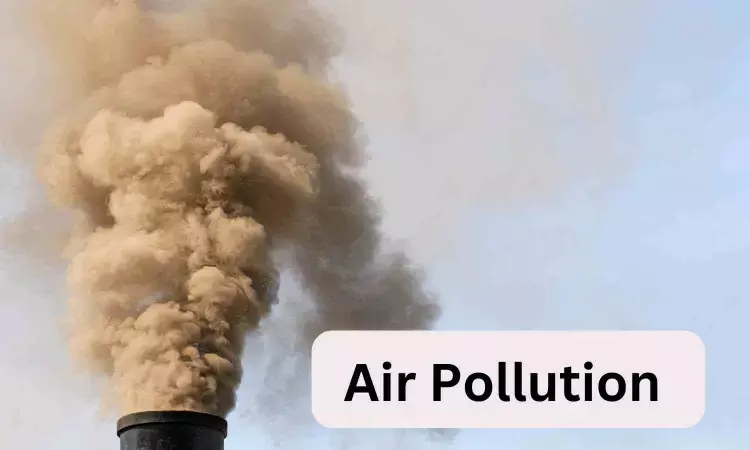- Home
- Medical news & Guidelines
- Anesthesiology
- Cardiology and CTVS
- Critical Care
- Dentistry
- Dermatology
- Diabetes and Endocrinology
- ENT
- Gastroenterology
- Medicine
- Nephrology
- Neurology
- Obstretics-Gynaecology
- Oncology
- Ophthalmology
- Orthopaedics
- Pediatrics-Neonatology
- Psychiatry
- Pulmonology
- Radiology
- Surgery
- Urology
- Laboratory Medicine
- Diet
- Nursing
- Paramedical
- Physiotherapy
- Health news
- Fact Check
- Bone Health Fact Check
- Brain Health Fact Check
- Cancer Related Fact Check
- Child Care Fact Check
- Dental and oral health fact check
- Diabetes and metabolic health fact check
- Diet and Nutrition Fact Check
- Eye and ENT Care Fact Check
- Fitness fact check
- Gut health fact check
- Heart health fact check
- Kidney health fact check
- Medical education fact check
- Men's health fact check
- Respiratory fact check
- Skin and hair care fact check
- Vaccine and Immunization fact check
- Women's health fact check
- AYUSH
- State News
- Andaman and Nicobar Islands
- Andhra Pradesh
- Arunachal Pradesh
- Assam
- Bihar
- Chandigarh
- Chattisgarh
- Dadra and Nagar Haveli
- Daman and Diu
- Delhi
- Goa
- Gujarat
- Haryana
- Himachal Pradesh
- Jammu & Kashmir
- Jharkhand
- Karnataka
- Kerala
- Ladakh
- Lakshadweep
- Madhya Pradesh
- Maharashtra
- Manipur
- Meghalaya
- Mizoram
- Nagaland
- Odisha
- Puducherry
- Punjab
- Rajasthan
- Sikkim
- Tamil Nadu
- Telangana
- Tripura
- Uttar Pradesh
- Uttrakhand
- West Bengal
- Medical Education
- Industry
Does air pollution affect lupus risk?

Union Health Ministry Mandates Chest Clinics, Surveillance Amid Severe Air Pollution
New research published in Arthritis & Rheumatology indicates that chronic exposure to air pollutants may increase the risk of developing lupus, an autoimmune disease that affects multiple organs.
There are few existing studies that investigate the risk of systemic lupus erythematosus (SLE) associated with long-term exposure to air pollutants. This study aimed to explore associations between long-term exposure to air pollutants and incident SLE and further evaluate interactions and joint effects of genetic risk and air pollutants.
For the study, investigators analyzed data on 459,815 participants from the UK Biobank. A total of 399 lupus cases were identified during a median follow-up of 11.77 years. Air pollutant exposure was linked with a greater likelihood of developing lupus. Individuals with a high genetic risk and high air pollution exposure had the highest risk of developing lupus compared with those with low genetic risk and low air pollution exposure.. The concentrations of air pollutants (fine particulate matter with diameter ≤2.5 μm [PM2.5], particulate matter diameter ≤10 μm [PM10], nitrogen dioxide [NO2], and nitrogen oxides [NOx]) were estimated by land-use regression model. We applied Cox proportional hazards model to explore linkages of air pollutants and incident SLE. The polygenic risk score (PRS) was used for further assessing the interactions and joint effects of genetic risk and air pollutants.
“Our study provides crucial insights into the air pollution contributing to autoimmune diseases. The findings can inform the development of stricter air quality regulations to mitigate exposure to harmful pollutants, thereby reducing the risk of lupus,” said co–corresponding author Yaohua Tian, PhD, of the Huazhong University of Science and Technology, in China.
The research concluded that Long-term exposure to air pollutants (PM2.5, PM10, NO2, and NOx) may increase the risk of developing SLE.
References: Meiqi Xing, Yudiyang Ma, Feipeng Cui, Dankang Li, Jianing Wang, Linxi Tang, Lei Zheng, Jian Yang, Yaohua Tian First published: 10 July 2024 https://doi.org/10.1002/art.42929
Dr Kamal Kant Kohli-MBBS, DTCD- a chest specialist with more than 30 years of practice and a flair for writing clinical articles, Dr Kamal Kant Kohli joined Medical Dialogues as a Chief Editor of Medical News. Besides writing articles, as an editor, he proofreads and verifies all the medical content published on Medical Dialogues including those coming from journals, studies,medical conferences,guidelines etc. Email: drkohli@medicaldialogues.in. Contact no. 011-43720751


